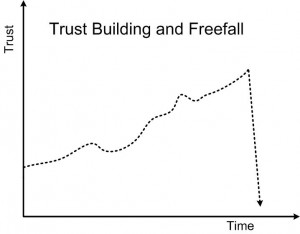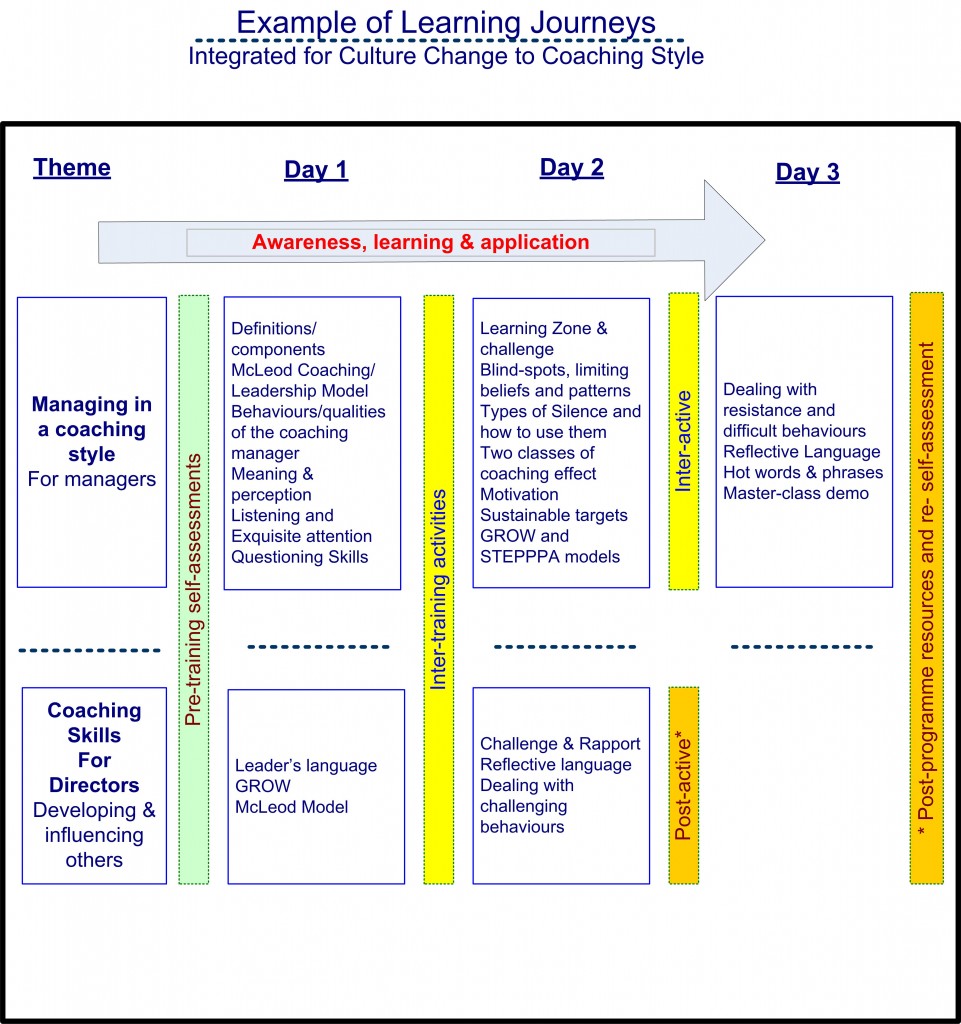Leader Traits and Learning Journeys – Developing Skills
Our delegates are often asked to come up with the key qualities of inspiring leaders. The same traits keep coming up again and again. Published research from this data summarizes the inputs from many hundreds of middle and senior managers. Here is a list where TF stands for ‘Trust Factor’.
A leader must exhibit consistently high behaviours in ALL seven Trust Factors to succeed. Failure to maintain consistent behaviours in any Trust Factor can be very damaging (see ‘Freefall’ figure).
Here are the seven Trust Factors listed:
Reliable & Consistent
Accepts responsibility
Discrete
Walks the talk
Authentic
(Demonstrably) supportive of people
(Demonstrably) interested in people.
To develop such skills we need to establish the required norms of behaviour and performance. Programmes normally include pre- intra- and post-course activities. These are best preceded by 1-2-1 coaching of the top Directors to establish a acceptable set of performance and behaviours that will become accepted in the changing organization.
Determining Performance & Behavioural Norms: ‘Best Practice’
We work with your stakeholders to determine the performance and behavioural norms required over time.
We will want to establish a working model for leadership that suits your work-culture and which will be meaningful and amenable to all participants of the programme.
We will seek to establish other key themes/outcomes that Senior stakeholders want as norms (but which may not fall from the development of the performance and behavioural norms based upon the organizational values).
Individuals with Differing Learning Needs
We aim to provide a mixed (blended approach) that satisfies the learning preferences of managers taking part in the programme. We already provide: video, web-based learning journeys to embed applied performance; skills and behaviours; Action Learning Sets; co-coaching programmes and 1-2-1 coaching at the highest, international level.
We want to work with stakeholders to establish the best blend. We want to agree the level of internal L&D activity will be working with us to extend and embed the delivery most effectively.
(Blended) Learning Journeys
Since 2004 we have increasingly worked with learning-journey programmes over many months delivery, rather than 3 or 5 day programmes. Such journeys have been run over years with MBDA (BAe), Kings College Hospital NHS Trust and Surrey County Councils.
These longer journeys take account of the different needs and challenges for real personal growth and change in individuals on the programmes. Some managers will be ready, others will need to grow and develop in their thinking: the learning journey approach enables all to participate and grow; the practical work between training days (Action Learning Sets, self-assessments, co-coaching etc) provide applied and immediately useful skills to keep all participants engaged.
Thus, at King’s College Hospital we had Senior researchers, consultants, financial managers, matrons, technical staff and Directors engaged. Here are examples of (published ) learning journeys to embed coaching-skills for managers and for directors. In each case, pre-training, interval-activities and post-training activities (typically managed by the organization) create blended learning over time.

